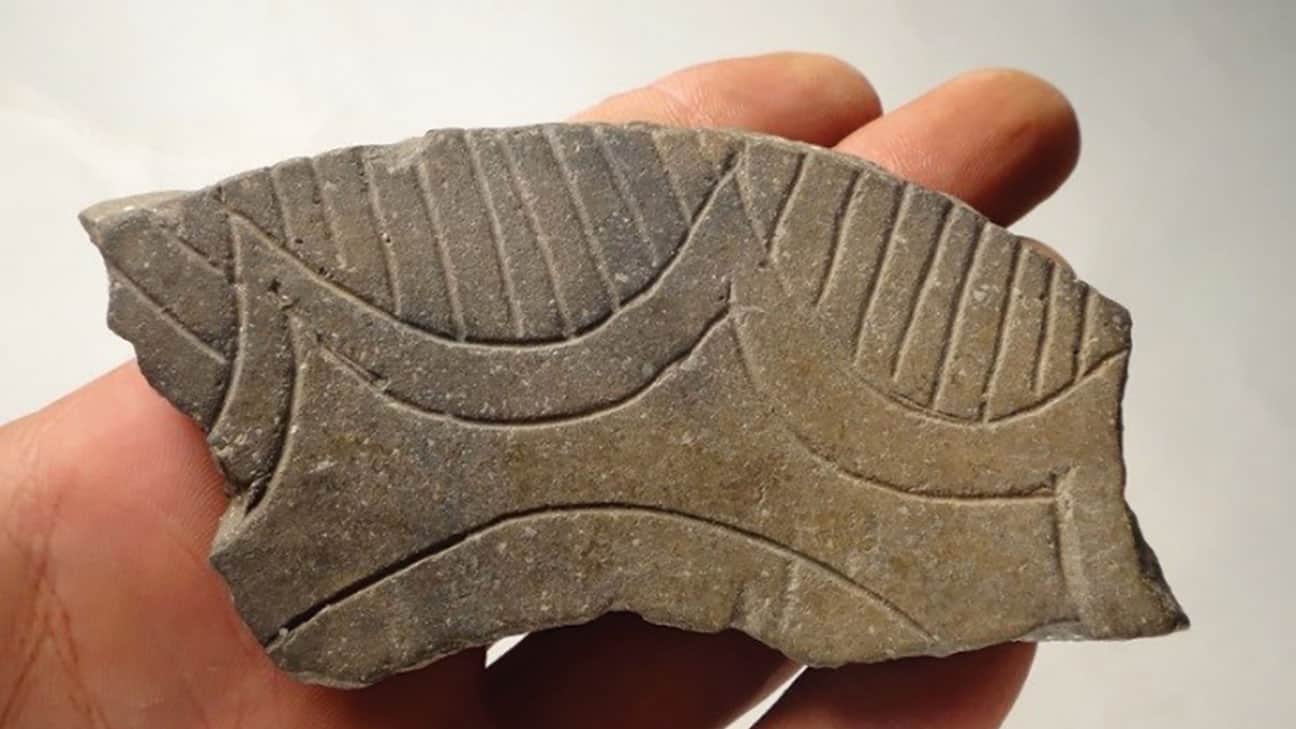
Artifacts are carefully excavated and preserved by the Choctaw Nation's Historical Preservation department.
Indigenous archaeology: what it is and why it is important to the Choctaw Nation
Published October 1, 2019Choctaw identity is founded upon a unique and special heritage, which is embodied in our language, our historic sites and our traditional knowledge. By practicing indigenous archaeology, we are keeping our culture safe and making sure future generations of Choctaws know about their culture and history. But, what is indigenous archaeology? You might have heard the terms used on their own but maybe not together. “Indigenous” is used to describe the original inhabitants and their descendants (i.e., Native Americans) of the United States. Archaeology is the study of the material objects and lifeways of past people. After reading these two definitions, one might think that indigenous archaeology is the study of the material objects and lifeways of Native Americans and their ancestors. While this assumption is not totally wrong, the meaning and roots of indigenous archaeology go much deeper.
Dr. Joe Watkins — an anthropologist and member of the Choctaw Nation — has written an entire book on this topic entitled “Indigenous Archaeology: American Indian Values and Scientific Practice.” Dr. Watkins states that indigenous archaeology needs to collaborate with, be influenced by and be practiced by indigenous peoples—after all, according to Sonya Atalay, it is supposed to be archaeology that is done “for, by, and with” Native American communities.
Scholars of indigenous archaeology have defined it in many ways. Sharon Milholland defines indigenous archaeology as “a form of archaeology where indigenous knowledge, values, and goals are the underpinnings of research.” Indigenous archaeology isn’t so much about who is doing the archaeology (Native or non-Native archaeologists), but rather it is about using Native American worldviews and ideas to conduct archaeological research.
Another important aspect of an indigenous archaeology approach is the fact that indigenous archaeologists have worked to expand the Native American voice within archaeology and in American history textbooks. They have also helped tribes reclaim the bones and funerary objects of ancestors and worked to support tribal sovereignty through helping tribes comply with cultural resources laws internally.
Through all this work, indigenous archaeologists can practice archaeology in a far more ethical manner than it has been practiced in previous years. Also, placing an emphasis on the Native worldview and voice has allowed for important topics to be addressed within many Native communities in North America and elsewhere in the world.
So, how and why is the practice of indigenous archaeology important to you and the Choctaw Nation? Indigenous archaeology is practiced every day by the staff of the Choctaw Nation Historic Preservation Department. We practice community engagement through presentations on Choctaw culture and history, archaeology camps, and even our upcoming archaeology day that will be held Oct. 19, 2019.
We have a deep respect for the past and items that were left behind by Choctaw ancestors. We also protect the sites in Choctaw Nation today as stewards of the lands of other tribes such as the Osage Nation and Caddo Nation, among others. Unlike most archaeologists, Choctaw Nation archaeologists do not totally excavate sites—unless absolutely necessary. Essentially, we protect Choctaw history by protecting archaeological sites left behind by our ancestors. We also incorporate Choctaw knowledge into our research. This can take many forms, but one example is working with tribal members to write down stories they have regarding Choctaw history and culture, or visiting old Choctaw sites they know about so we can keep those sites safe from any destruction.
If you know of any archaeological sites and especially sites that pertain to Choctaw history, please feel free to contact the Historic Preservation department at 800-522-6170 and let us know.

